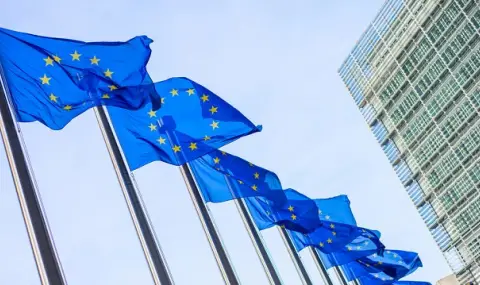On August 1 the Greek government announced the candidacy of the governor of the Central Macedonia region, Apostolos Dzidzikostas, for commissioner in the next European Commission of Ursula von der Leyen. The nomination of Dzidzikostas has provoked a lot of commentary in the Greek media, most of which more or less emphasize that while on the outside Dzidzikostas appears to be a technocrat, a successful administrator and a popular politician with experience on the European stage, internally he appears to be suited in completely different ways. regional, political and even intra-party considerations.
Undoubtedly, the profile of Dzidzikostas makes it logical for his career to move to the European level as well. Born in 1978, he graduated in Political Science, Foreign Policy and Diplomacy from Georgetown University. in Washington, MA in European Public Administration and Economics from “University College” in London.
As “Naftemboriki“ recalls, in 2020 he was elected president of the European Committee of the Regions, thus becoming the first Greek to head a European body.
However, the opinion is unanimous that the nomination of Dzidzikostas is not only due to his technocratic profile and his preparation for the European stage. As the Greek government spokesman Pavlos Marinakis himself said, “this is an election with political characteristics that highlights the importance of Macedonia and Northern Greece, a region with a strategic location, connectivity and geopolitical importance both for the Balkans and Southeast Europe, and for the northeastern edge of the Mediterranean“.
The emphasis on the influence of Dzidzikostas in Northern Greece is not accidental. There, the position of the ruling center-right party in Greece "New Democracy" is traditionally strong, but again there in the elections for the European Parliament in June, it suffered losses from the populist right and, more specifically, the "Greek Solution" party, which in some places came in second place after "New Democracy", as he noted before BTA immediately after the elections and the journalist from the Athens daily “Kathimerini“ Dora Andoniou. For his part, Dzidzikostas maintains high popularity in his region, namely the region of Central Macedonia centered on Thessaloniki, where he won the elections for regional governor in 2014, 2019 and 2023, with percentages reaching 60 percent.
Dzidzikostas' personal popularity is only one of the factors creating his political influence in the region. As “Naftemboriki” delicately notes, his nomination seems to have taken seriously the fact that he is a person with a long way to go in "New Democracy", but at the same time he can speak to a wider, not only party, audience.
What “Naftemboriki“ only hints, it is said in a much more direct text by other publications such as the Greek portal "Insider", which recalls that in 2014 Dzidzikostas appeared in the local elections not as a representative of "New Democracy" but as an independent candidate and its rival, backed by nationalist parties such as “Independent Greeks” of Panos Kamenos, "Union for the Motherland and the People" by Viron Polidoras and LAOS by Yorgos Karadzaferis.
In the European elections in June "New Democracy" performed unconvincingly and got just over 28 percent – far from the result of about 41 percent in last year's parliamentary elections. This exacerbated the contradictions between the centrist-liberal wing of Prime Minister Mitsotakis and the “popular right“ in the party. As the portal "News 247" writes, in the parliamentary group "knives were taken out". and right-wing MPs openly warned Mitsotakis against the ideological “replacement“ and “pasokization“, i.e. the attraction of former cadres of the center-left PASOK movement, and urged “not to move away from our ideological identity” in order to “not suffer like Macron”. Right-wing MPs also criticized the passage of the law legalizing same-sex marriage, arguing that it had a negative impact on New Democracy's election results.
Although Mitsotakis responded that it was the expansion of the party's influence towards the center that ensured decisive electoral victories in 2019 and 2023 and that “labels belong to the past”, many see in the nomination of Dzidzikostas precisely a message to party circles, that the prime minister and leader of "New Democracy" “he does not forget his right-wing roots”, as commented by the publication “Pondiki”, and that he has learned a lesson from the results of the European elections.
„News 247“ also sees in the nomination of Dzidzikostas part of a strategy to flatter the “popular right“, especially in Northern Greece.
The publication also quotes informed personnel of "New Democracy", according to which, with the candidacy of the regional governor of Central Macedonia, Prime Minister Mitsotakis is sending to Brussels one of the few who could take a leadership role in a possible attempt to create a new right-wing party from the dissatisfied “popular right“ in New Democracy – something for which, according to many, there is political space, especially in the northern part of the country.
As for the possible portfolio of Dzidzikostas, according to the information of “News 247“ the position of the European Commissioner for Transport was discussed in view of the major infrastructure projects in Northern Greece to improve road and rail connectivity with other Balkan countries and the rest of Europe. “Naftemboriki“ mentions among the possibilities the post of European commissioner for enlargement. The newspaper writes that there is also interest in portfolios such as defense, energy and competitiveness, but there are claims for them by strong European players.
